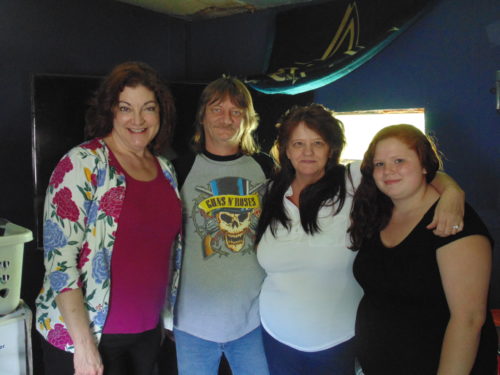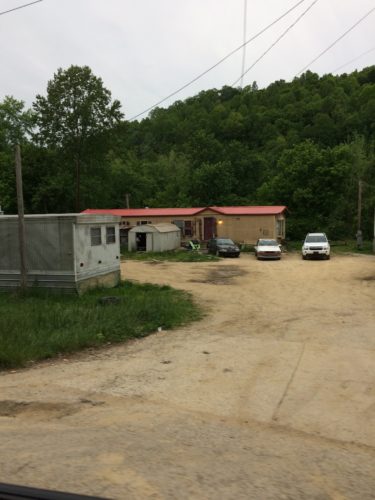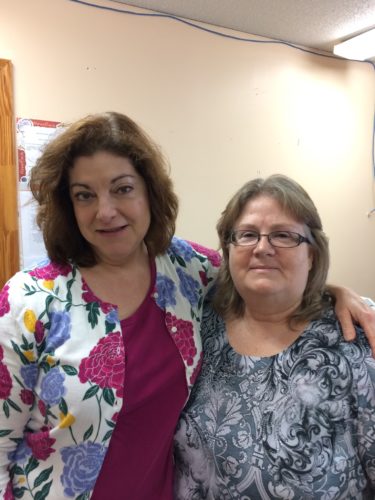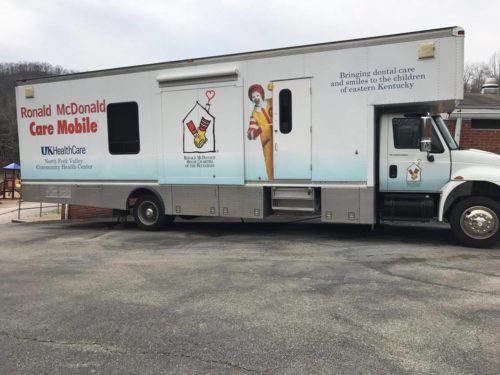The first question Shelley Oxenham, U.S. Projects Specialist for Children Incorporated, asked Michael Helton, our volunteer coordinator at Magoffin County High School, on her recent visit was what he saw for the future of the county and region. Shelley was meeting with Michael as a part of her trip to Kentucky, in conjunction with Director of U.S. Programs, Renée Kube’s, visit to Martin County schools.
Carrie said that the children mostly receive clothing, shoes, and school supplies with the funds their sponsors provide. She also stated that Children Incorporated is the center’s greatest resource; she does not know how she would provide for the children without our program.
Michael sighed and quietly said, “No matter what anyone says or promises, coal is never coming back. This area will continue to decline unless another industry moves in and creates jobs.”
Magoffin County has the highest unemployment rate in the state of Kentucky. As of this year, unemployment is at 18.9 percent — seven percentage points higher than the next-highest county (Elliott County at 11.6 percent). The coal mines have been shut down for many years, and a local factory shut down two years ago — meaning even more unemployment in the area.
Trying to Create Jobs
To deal with the lack of employment opportunities, the county is trying to get a veterans’ nursing home built in Salyersville, which would create a lot of jobs.
Also, a small mine has re-opened; but there are few jobs available, and they are not the same high-paying jobs of the past. Many of the coal plants have closed down, never to reopen, having been replaced permanently by natural gas plants. Years ago, Magoffin was a tobacco-producing area as well – but that industry has also moved out along with the coal industry.
Currently, the school board is the largest employer in Magoffin County. Most of the other jobs in the area are part-time or minimum wage jobs at local fast food chains, and stores like Dollar General.
One of the students Shelley met with told her he works as a cashier at McDonald’s, and he fears that one day in the near future, his job will not exist because of the rising popularity of automation, in which customers place their food orders on a screen instead of giving their order to a cashier. Fast food chains have already been testing this idea in larger cities. The rise of self-ordering and self-checkout could really wipe out what remains of employment opportunities for high school or newly-graduated students.
A Special Delivery for a Sponsored Child
At North Magoffin Elementary School, Shelley met with Carrie Allen, the Family Resource Center Coordinator, and her assistant, Deana Branch. Carrie and Deana are both long-time veterans of the center. They are so kind, and really care about the well-being of all of the students in their care. Carrie said that the children mostly receive clothing, shoes, and school supplies with the funds their sponsors provide. She also stated that Children Incorporated is the center’s greatest resource; she does not know how she would provide for the children without our program.
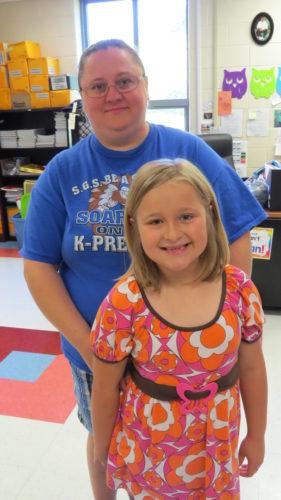
One of our sponsored children with her mother
While Shelley was visiting the school, one of our sponsored children, Allison*, received a package from her sponsor. Allison’s little face lit up when Deana told her about the package. She slowly and carefully opened the box, and examined each item very seriously. She then colored a picture for her sponsor as a thank-you. Deana asked Allison what she wanted to tell her sponsor, and in a small, quiet voice, she said, “I love you.”
Carrie and Deana wish more sponsors would write letters and send packages to their sponsored children. It has such a great impact on the children’s self-esteem, emotional well-being, and school attendance. They wish sponsors could see children’s faces light up when they get something in the mail.
An Unsponsored Child’s Scars
Shelley also met a little girl named Stephanie*, who is currently unsponsored. She is eight years old and very small for her age; she still wears toddler-sized clothes. Stephanie has year-round allergies and breathing issues. When she was five years old, she was burned in a house fire and has severe burns on her legs as a result. A school staff member has to rub lotion on her legs every day because they are so dry.
The winter is especially hard on her; because of the burns, she gets cold really quickly. She will need snow boots and warm winter clothes to protect her legs from the brutal mountain winters. Hopefully, she will have a sponsor by then. Stephanie also has a lot of emotional scars from her tough upbringing. Having a sponsor this year would be a big help to her and her family. Her mother visits the resource center a lot to get hygiene products and other necessities, and she is always extremely appreciative of what she receives.
They wish sponsors could see children’s faces light up when they get something in the mail.
Saving for College as a Kid
During her visit to Magoffin County High School, Shelley met with Alan*, a high school senior who works twenty hours a week while also going to school full-time.
After high school, Alan wants to get his associate degree in carpentry. He skipped his senior trip to Washington, D.C. and Virginia Beach so that he could put in a full week’s worth of work in order to save for his college expenses.
He said that having a sponsor has helped him be able to save money for college. He commented that it’s the little things, like a new pair of comfortable pants that fit, that make life easier.
Alan has had the same sponsor since he was a child. It makes him feel good that there are people in the world who care, and that his sponsor committed to helping him all the way through graduation. He hopes to one day do the same for another child.
Boosting Confidence and Self-esteem for the Future
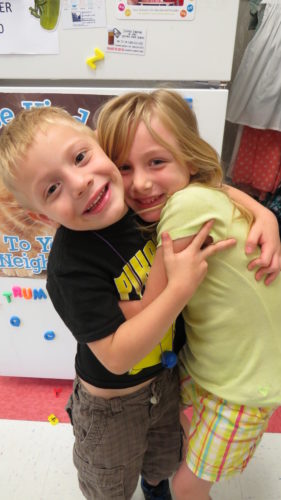
Sponsored kids love smiling for the camera!
Jonnie Risner is our coordinator at South Magoffin Elementary School. She says Children Incorporated helps out with getting clothing for children in need; but a lot of what she buys for her students is soap, shampoo, conditioner, and laundry detergent. She said that our program is her greatest resource, and she doesn’t know what she would do without us. The children are in great need, and the program is such a boost to their confidence and self-worth. She said that sponsors who write letters open the eyes of the children to the rest of the world.
Shelley also asked Jonnie about the future of the county, and she said that the future looks grim. There aren’t any jobs, and the hope that coal mining will make a comeback does not seem realistic. There are two new Dollar General stores being built in town; these will give other people some jobs, but they will put local grocery stores at risk of going out of business. The worry is not only for the parents and adults in Eastern Kentucky, but also whether there will be jobs for today’s children once they graduate.
Regardless of what the future may hold for the kids of Magoffin County, Kentucky, your sponsorship and contributions make a world of difference today – as well as working toward making a different world for them tomorrow.
*Names changed for children’s protection.
***
HOW DO I SPONSOR A CHILD IN KENTUCKY?
You can sponsor a child in Kentucky in one of two ways – call our office at 1-800-538-5381 and speak with one of our sponsorship specialists, or send us an email at sponsorship@children-inc.org.

